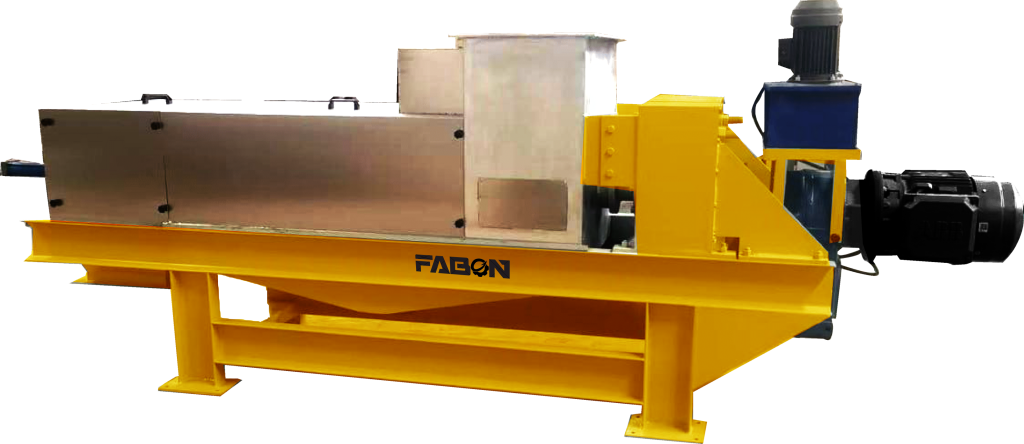
🌾 Maximize Moisture Control: Napier Grass Dewatering Machine by Fabon Engineering, Nashik
As demand for green energy and bio-based animal feed continues to grow, Napier grass (also known as elephant grass) has become a vital crop in biomass and livestock industries. However, one major challenge in processing Napier grass is its high moisture content, which can reach up to 75–85%. This significantly impacts storage, drying time, and processing efficiency.
Enter the Napier Grass Dewatering Machine from Fabon Engineering Pvt. Ltd., Nashik — an innovative, cost-effective solution for efficient moisture extraction, designed specifically for Indian agro-climatic conditions.
🔧 What is a Dewatering Machine?
A dewatering machine is designed to reduce the moisture content of wet biomass by squeezing or pressing the material. In the case of Napier grass, this means reducing the moisture before:
Pelletization or briquetting
Composting or fermentation
Feeding in biogas plants
Animal feed processing
By mechanically removing moisture, the energy cost of drying is significantly reduced, improving overall operational efficiency.
🛠️ Key Features of Fabon’s Napier Grass Dewatering Machine
🔄 High-Pressure Twin Roller or Screw Press Design
Optimized to crush and press fibrous Napier grass efficiently.🌿 Specialized for Green Fodder
Designed specifically for soft-stemmed grasses like Napier, maize stalk, and sugarcane tops.⚙️ Robust Frame with Anti-Corrosive Coating
Built for long-term use in moist and outdoor environments.💧 High Moisture Extraction Rate
Reduces moisture from ~80% to 50–60% in a single pass.🧺 Continuous Operation with Adjustable Pressure
Suitable for large-scale farms and processing plants.
📊 Technical Specifications (Sample Models)
| Model | Capacity | Moisture Reduction | Motor Power | Output Form |
|---|---|---|---|---|
| ND-500 | 500 kg/hr | 80% ➝ 50–55% | 5 HP | Pressed Napier |
| ND-1000 | 1 TPH | 80% ➝ 50% | 10 HP | Fibrous cake |
| ND-2000 | 2 TPH | Customizable | 15 HP | Dewatered fodder |
Larger capacities and mobile setups available on request.
🌱 Where It’s Used
Biomass Pellet & Briquette Plants
Organic Waste Management Units
Biogas and Bio-CNG Plants
Dairy & Livestock Farms
Compost and Vermicompost Units
This machine is an ideal pre-processor in any plant where high-moisture green biomass needs to be made more manageable and process-ready.
🌟 Benefits at a Glance
🚀 Faster drying time — reduces sun-drying or thermal drying costs
💰 Lower fuel consumption in pellet/briquette drying systems
🐄 Better silage and feed handling for dairy farms
🔄 Continuous operation with minimal labor
🛠️ Low maintenance, rugged design for rural environments
🇮🇳 Why Choose Fabon Engineering?
🏭 Made in India by industry experts in biomass engineering
🧑🔧 Complete setup support, from site design to installation
🛒 Custom machines available for different crops and capacities
🛠️ Spare parts & service available across India
📞 Reliable after-sales support
❓ FAQ: Napier Grass Dewatering Machine by Fabon Engineering, Nashik
1. What is a Napier Grass Dewatering Machine?
A Napier Grass Dewatering Machine is a specialized piece of equipment designed to mechanically extract moisture from high-moisture biomass like Napier grass (elephant grass), maize stalks, and other green fodders. It helps reduce moisture content before drying, pelletizing, composting, or feeding into biogas plants.
2. Why do I need to dewater Napier grass?
Napier grass has a naturally high moisture content (up to 80–85%), which makes it difficult to store, process, or burn efficiently. Dewatering helps:
Reduce drying time and cost
Improve feedstock quality for biogas and pellets
Prevent spoilage during storage
Reduce energy consumption in downstream processes
3. What moisture levels can be achieved with this machine?
In a single pass, Fabon’s dewatering machine can typically reduce Napier grass moisture from:
80–85% ➝ 50–55%, depending on the variety and condition of the grass.
Multiple passes or combination with solar/mechanical drying can further reduce moisture.
4. What is the capacity of the machine?
| Model | Capacity | Motor Power | Output Moisture |
|---|---|---|---|
| ND-500 | 500 kg/hr | 5 HP | 50–55% |
| ND-1000 | 1 TPH | 10 HP | ~50% |
| ND-2000 | 2 TPH | 15 HP | ~50% |
Custom and mobile units are also available based on your needs.
5. Can the machine handle other crops or materials?
Yes. While optimized for Napier grass, this machine can also process:
Sugarcane tops
Maize stalks
Soft-stem green fodder
Cowpea plants
Banana stem (limited)
Fabon can also customize the design for other green biomass.
6. Is this machine suitable for pellet plants or biogas units?
Absolutely. It’s an ideal pre-processing unit for:
Biomass pellet and briquette production
Organic waste-to-energy projects
Silage or animal feed preparation
Composting units
7. What kind of operation and maintenance is required?
Fabon’s dewatering machines are:
Easy to operate with minimal training
Equipped with adjustable pressure controls
Low maintenance, with accessible rollers and press plates
Built from anti-corrosive and durable materials for outdoor/rural use
8. Does the machine need a continuous power source?
Yes. The machine is powered by an electric motor (3-phase). However, diesel engine or PTO-driven models can be provided for off-grid or mobile use.
9. What after-sales support does Fabon Engineering offer?
On-site installation and commissioning
Training for operators and maintenance staff
Spare parts supply and AMC (Annual Maintenance Contracts)
Phone and WhatsApp support for quick troubleshooting

